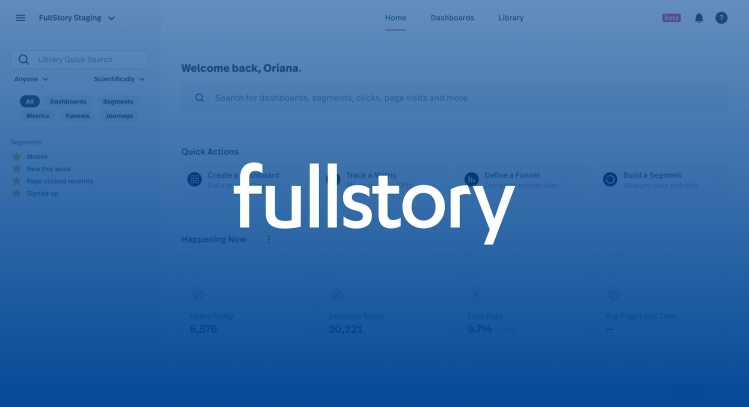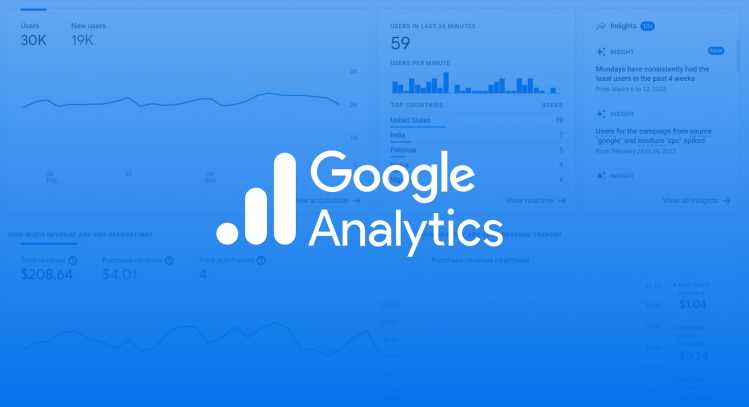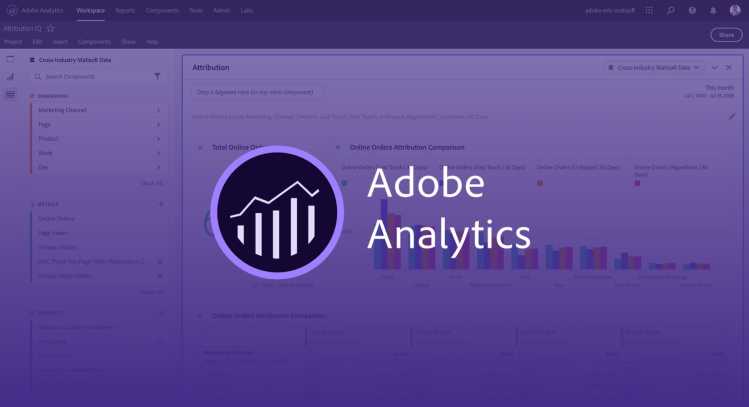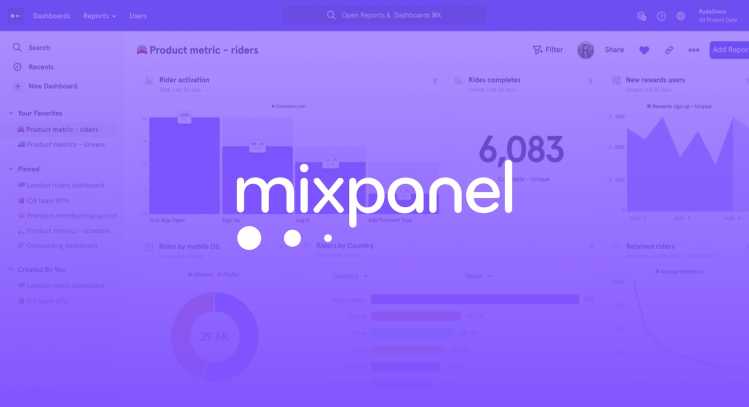Enterprise analytics tools have become essential for businesses looking to optimize their online presence. With a variety of platforms offering unique capabilities, choosing the right tool can be challenging. In this article, we take an in-depth look into the world of enterprise web analytics, focusing on key players and considerations for 2023.
What is enterprise web analytics?
Enterprise web analytics is a set of methodologies and technologies used to measure, collect, analyze, and present internet data. This data is used to understand and optimize web usage, providing insights into the behaviors and preferences of website visitors.
Plus, web analytics provides quantifiable metrics of various aspects of website performance. These metrics include the number of visitors, pages viewed per visit, time spent on the site, bounce rates, conversion rates, and more. This data can be tracked in real time, offering valuable insights that help in optimizing a website's search engine visibility, improving user engagement, and ultimately meeting business objectives.
From an enterprise perspective, web analytics is not just a tool for measuring website traffic but a resource for business and market research—and a means to gauge website effectiveness.
The role of enterprise analytics
In the enterprise landscape, analytics goes beyond the measurement of website metrics. It's a robust mechanism for capturing, interpreting, and utilizing data across various business functions. This broader scope is commonly referred to as enterprise analytics.
Enterprise analytics is critical because it supports:
Informed decision-making and strategic planning
It helps drive business growth and competitive advantage
It integrates data from multiple sources, providing a holistic view of the business and supporting strategic decision-making across multiple departments
This process allows companies to pinpoint trends, uncover insights, predict future scenarios, and optimize operations.
One of the primary roles of enterprise analytics is to enhance customer understanding.
By monitoring and analyzing customer behavior data, businesses can identify customer needs, preferences, and pain points, leading to more personalized service or product offerings.
Additionally, enterprise analytics can help in detecting and mitigating risks. With the help of predictive analytics and machine learning capabilities, businesses can forecast potential threats or downturns and devise proactive strategies to counteract these risks.
With the rise of big data and advanced analytics technologies, enterprise analytics is also playing a significant role in innovation. Enterprises can leverage the insights gained from analytics to develop new products or services, improve business models, and create new revenue streams.
At this point, high-scale enterprise analytics is tablestakes for any successful business.
How to choose an enterprise web analytics tool
Choosing the right enterprise web analytics tool can be a challenging task given the wide array of options available. However, considering the following factors can simplify the selection process:
Data collection and analysis
The tool should have robust capabilities to collect data from multiple sources and present it in a meaningful, organized manner. Look for options that provide real-time data monitoring and reporting, as well as trend analysis.
User behavior insights
The analytics tool should provide comprehensive insights into user behavior. This includes tracking how visitors interact with your website, their navigation path, the content they engage with, and where they drop off.
Customization and scalability
Every business has unique needs. Your analytics tool should offer customization options to cater to your specific requirements. As your business grows, your analytics needs will also change. This means the tool should be scalable to adapt to your evolving needs.
Integration
The tool should seamlessly integrate with other platforms you're using, such as CRM systems, marketing automation tools, and social media platforms.
Privacy and compliance
In the age of stringent data privacy regulations, the tool you choose must adhere to the necessary compliance standards and offer robust privacy protection features.
Customer support
Lastly, consider the level of customer support provided by the vendor. Prompt and effective support can make a significant difference in your experience with the tool.
Best web analytics tools for enterprises
FullStory
FullStory has proven itself to be a reliable and comprehensive solution for businesses seeking to gain deep insights into user behavior on their websites.
FullStory's standout feature is its ability to autocapture every user interaction. Unlike other platforms that often just tell you "what" happened, FullStory dives deeper, also uncovering the "why" behind issues and opportunities. This lets your team to understand key metrics and track them over time, helping you make informed decisions.
Key features of FullStory:
FullStory autocaptures every interaction, going beyond simply reporting "what" happened to uncover the "why" behind issues and opportunities. This helps your team understand key metrics and make informed decisions.
FullStory is easy to implement, offering immediate access to insights without slowing down your site.
It prioritizes user privacy by masking text elements to protect their information.
FullStory offers a comprehensive view of customer interactions, providing user insights to shape your product roadmap and unite teams around a single source of data.
It helps prioritize work effectively through features like funnel analysis, conversion opportunities, and diagnostic capabilities.
FullStory seamlessly integrates with various tools and platforms, making it a valuable part of your digital ecosystem.
FullStory is a comprehensive product analytics solution that empowers teams, optimizes work, and helps you build user-friendly products.
Google Analytics
Google Analytics is a popular web analytics platform widely used for tracking website traffic and user behaviors.
Pros of Google Analytics:
Widely used and popular for tracking website traffic and user behaviors
Offers real-time data tracking and custom reports
Advanced features like BigQuery Export enable in-depth data analysis.
Consultative services from dedicated experts are available.
Cons of Google Analytics:
Can be complicated for beginners
Mastering its advanced features may require significant effort and learning
Adobe Analytics
Adobe Analytics is a tool that provides insights into customer behaviors on your website.
Pros of Adobe Analytics:
Good for gaining insights into customer behaviors
Features like segmentation, time-series analysis, and machine learning
Allows businesses to uncover meaningful patterns and make data-driven decisions
Cons of Adobe Analytics:
Training provided may be insufficient for novice users
User interface may not be fully accessible for colorblind users, potentially impacting ease of use
Mixpanel
Mixpanel offers helps track user interactions on your website.
Pros of Mixpanel:
Friendly interface for tracking user interactions with your website
Focus on event-based analytics, allowing you to track and analyze individual steps
Provides insights into user behavior throughout their journey on your website
Cons of Mixpanel:
May lack the broader, holistic data view provided by some other platforms
Its emphasis on event tracking may limit the scope of analysis for certain types of data
Amplitude
Amplitude is a product analytics tool known for its comprehensive insights into user behavior.
Pros of Amplitude:
Insights into user behavior for measuring user engagement and retention
Powerful analytics capabilities to drive growth
Analytics, user journey tracking, and segmentation
Cons of Amplitude:
Data export functionality may be limited in terms of the amount of data that can be exported at once
Improvement in the data export process could enhance user experience
Other types of useful analytics tools
While web analytics tools provide valuable insights into your website's performance and user behavior, several other types of analytics tools can be beneficial in gaining a comprehensive understanding of your online presence.
SEO analytics tools
SEO analytics tools, such as Ahrefs, serve as a critical component in businesses' digital marketing arsenal, helping to optimize websites for superior search engine performance. These tools delve into the intricate world of SEO, providing vital insights into keyword rankings, backlinks, site structure, and even competitor strategies.
By closely monitoring competitors, you can uncover effective SEO practices and trends, positioning your website for improved search engine rankings. Ultimately, these tools play a crucial role in your digital strategy, supporting higher visibility, increased traffic, and potentially, improved conversions.
Social media analytics tools
Social media analytics tools such as Sprout Social and BuzzSumo allow businesses to track their social media performance. They offer insights into post engagement, audience demographics, optimal posting times, and competitor performance, facilitating the creation of effective social media strategies that enhance brand visibility and customer engagement.
A/B and multivariate testing tools
A/B and multivariate testing tools, like industry front-runners Optimizely and AB Tasty, are essential for businesses aiming to deliver the most effective user experience. These tools facilitate experimentation with different versions of web pages or features, enabling businesses to discern which iteration performs best with their target audience.
These tools delve even deeper by providing data-driven insights into user preferences and behaviors, painting a comprehensive picture of user interactions.
Pros of A/B testing tools:
Businesses can make informed decisions to optimize the user experience.
Aligning the user experience with expectations and needs leads to improved engagement.
It also reduces bounce rates and increases conversions.
These tools are essential for continuous improvement and staying competitive in the digital landscape.
Content analytics tools
Content analytics tools are crucial for measuring and understanding your content's impact. They track metrics like page views, dwell time, shares, and comments to gauge user engagement. This helps identify resonating content and guides your strategy. By analyzing trends and patterns in user interaction, these tools provide evidence-based insights to refine your content.
Whether it's blog posts, videos, or infographics, they give you the knowledge to meet audience expectations. The outcome is more engaging content, heightened user satisfaction, and a stronger brand image.
Creating executive buy-in
Obtaining executive buy-in is crucial when implementing enterprise web analytics tools. Presenting a solid case to key decision-makers that highlight the potential return on investment can help secure the support needed. Here's how you can pitch to each stakeholder:
CFO
When approaching your CFO, provide solid evidence on the correlation between web analytics software and successful campaigns or businesses. Highlight how this technology will offer a return on investment. Data-driven research indicating how the use of web analytics can increase lead generation, enhance customer retention, or improve overall business profitability will appeal to their financial acumen. Data visualizations can be instrumental in conveying these points effectively.
CIO
For your CIO, discuss the technical benefits of modern web analytics software. Highlight how it can free up IT resources by enabling the quick deployment of tag codes. Share industry statistics, like how businesses can improve their ability to implement new or revised tags quickly, after deploying a tag management system. Discuss the seamless integration with existing tech infrastructure, adding value to current IT investments.
CEO
Pitching to your CEO requires focusing on the strategic benefits of the system. Highlight how the data from web analytics tools can drive business strategy, optimize operations, and improve customer satisfaction. Discuss how it empowers employees to be successful in their roles. Additionally, recommend starting with a small proof of concept, like a low-cost beta project, to demonstrate the practical benefits of the technology. This step can reassure executives of the technology's value, setting the stage for broader adoption across the organization.
Frequently asked questions
Why is web analytics important?
Web analytics is essential as it provides insights into how visitors engage with your website. It helps track visitor behavior, identify popular content, understand user journeys, and evaluate marketing performance. These insights inform business decisions, improve user experience, enhance marketing strategies, and increase conversion rates. Without web analytics, businesses would rely on assumptions instead of data, potentially harming their success.
What is enterprise-wide analytics technology?
Enterprise-wide analytics technology refers to systems that collect, analyze, and present data from all departments of an organization. They offer a complete view of business operations and customer interactions, enabling data-driven decision-making. These systems incorporate different types of analytics to provide a holistic understanding of the business, leading to improved efficiency, customer understanding, and business growth.









